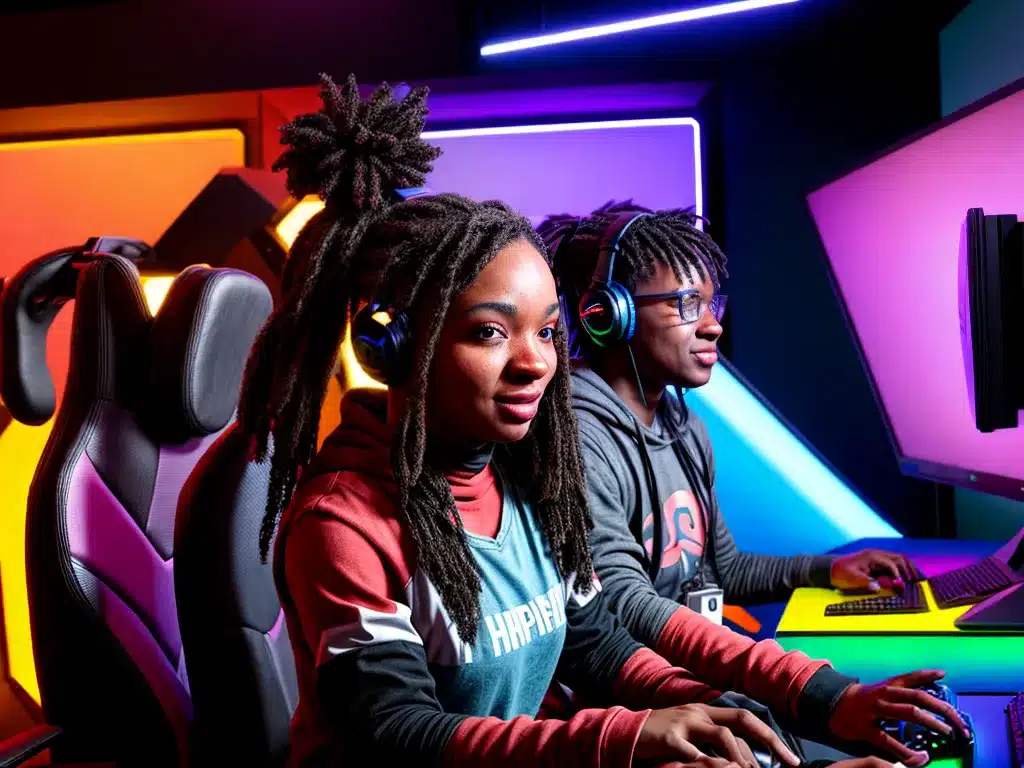
How the Gaming Community Has Become More Diverse and Inclusive
The gaming community has come a long way in becoming more diverse and inclusive over the years. As a gamer myself, I have witnessed firsthand how the community has changed to be more accepting of people from all backgrounds. Here is an in-depth look at how the gaming community has evolved:
The Increase in Diversity of Gamers
The demographics of gamers have shifted dramatically in the past couple of decades. Gaming is no longer dominated by the stereotype of teenage boys. More women, people of color, and members of the LGBTQ+ community are proudly identifying as gamers.
Women Gamers
Women now make up nearly half of all gamers at 46%, a huge increase from the previous estimate of 38% in 2014. The number of women gamers age 50 and up has also doubled in recent years. Female gamers have become more vocal in demanding better representation and more inclusive games. Gaming companies are starting to listen by putting out games with stronger female protagonists. The rise of live streaming has allowed more women gamers to showcase their skills. All this helps dispel dated stereotypes about women and gaming.
Gamers of Color
According to industry research, around 70 percent of Black and Hispanic individuals self-identify as gamers, compared to only 58 percent of white individuals. The number of Black gamers increased from 15 percent in 2015 to 18 percent in 2022. There has been a push for more diversity in game characters to increase representation and visibility. Top games like League of Legends, Overwatch, and Apex Legends feature heroes from different racial backgrounds. However, more work needs to be done.
LGBTQ+ Gamers
Roughly one-third of gamers identify as LGBTQ+, higher than the general population. The LGBTQ+ gaming community has gotten more vocal in demanding companies address issues like representation, inclusive game settings and storylines, and toxic behavior. Most major gaming publishers like Electronic Arts, Ubisoft, and Activision Blizzard have official LGBTQ+ employee resource groups. Popular esports organizations like Cloud9 have signed partnerships with The Trevor Project for suicide prevention among LGBTQ+ youth. Pride-themed virtual goods during events like Pride Month have become more commonplace.
Gaming Companies Becoming More Inclusive
The increased diversity in the player base has pushed the industry to enact more inclusive policies and practices. Here are some of the changes gaming companies have implemented:
Inclusive Game Design
- Character customization with more options for gender, race, and sexuality
- Games exploring meaningful social issues faced by marginalized groups
- Authentic representation by hiring diverse writers/designers
Corporate Policies
- Diversity hiring initiatives to recruit more women and people of color
- Internal inclusion programs providing cultural competency training
- Forming employee resource groups for women, LGBTQ+ workers, etc.
- Updating code of conduct policies to ban discrimination and harassment
Public Stances
- Game companies publicly supporting LGBTQ+ rights and racial justice causes
- Donating to nonprofit organizations serving marginalized communities
- Running awareness campaigns about issues like online toxicity
How the Community Itself Has Changed
The gaming community, outside of industry actions, has also evolved to be more inclusive thanks to activism and leadership among gamers themselves:
Grassroots Movements
- Hashtag campaigns like #INeedDiverseGames and #GamerGate bringing attention to key issues
- Nonprofit groups like Black Girls Code helping women of color get into game development
- Inclusive gaming conventions like GaymerX centering LGBTQ+ gamers
Influential Voices
- Diverse gamers gaining large followings on Twitch/YouTube and positively representing their communities
- Top professional esports players publicly supporting racial justice and LGBTQ+ rights
- Veteran gamers mentoring and advocating for the next generation
Self-Policing
- Players calling out racism, misogyny, homophobia and reporting abusive behavior
- Teammates standing up for others when they face harassment in online lobbies
- More gaming communities establishing rules of conduct banning discriminatory language
The gaming world still has room for improvement, but the increasing diversity of voices and activism within it will lead to even more positive changes. As a gamer, I feel proud to be part of a community that is working hard to be inclusive for all.












